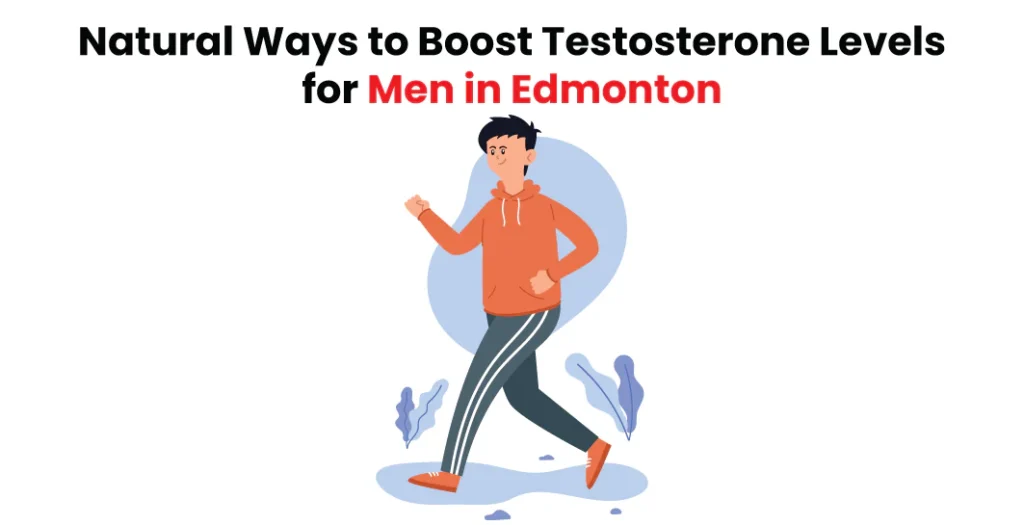When energy dips, motivation fades, and strength training feels harder than it used to, men often wonder if their testosterone is sliding. At Boost Health Clinic, we see many patients across Indonesia who want to know if lifestyle changes alone can help restore balance. The good news: there are natural ways to support testosterone production, and some of them truly work. The not-so-good news: if levels are clinically low, lifestyle adjustments might not be enough on their own. Here’s a clear look at what really helps, backed by science and our clinical experience.
Strength Training and Resistance Work
Exercise is the single most effective natural testosterone booster. In particular, resistance training—compound lifts like squats, deadlifts, and bench presses—has been shown to increase testosterone temporarily and improve overall hormone balance. A PubMed review found that men who trained regularly not only had higher baseline testosterone but also better body composition and metabolic health.
Even men already on therapy benefit enormously when training is added. As we explain in How TRT works, lifestyle and medication go hand-in-hand. Without strength training, testosterone—whether natural or prescribed—cannot unlock its full potential.
Sleep: The Forgotten Hormone Reset
Men often underestimate sleep’s role in hormone health. A University of Chicago study showed that men restricted to five hours of sleep per night for one week had testosterone levels 10–15% lower than those who slept a full eight hours. That’s a dramatic drop.
Deep, consistent sleep is when the body produces the most testosterone. Fixing your bedtime routine, avoiding late-night screens, and sticking to consistent sleep/wake times can improve testosterone as much as some supplements. For more on the interplay between hormones and rest, read How hormones shape your sleep.
Weight Management and Fat Loss
Abdominal fat is a testosterone killer. Fat cells convert testosterone into estrogen, reducing the amount of circulating male hormone. This explains why men who gain central fat often experience lower libido, less energy, and increased irritability.
Losing weight, even modestly, has been shown to boost natural testosterone. At our clinic, we often combine nutrition strategies with modern medications like Ozempic vs Mounjaro for men who struggle with appetite or insulin resistance. By reducing fat and improving insulin sensitivity, testosterone has room to rise.
Nutrition That Fuels Hormones
Forget miracle pills—focus on proven nutrients. Testosterone production depends heavily on:
-
Zinc (found in beef, oysters, pumpkin seeds)
-
Magnesium (spinach, almonds, dark chocolate)
-
Vitamin D (sunlight, fatty fish, eggs, or supplementation)
-
Healthy fats (olive oil, avocado, nuts)
Deficiencies in any of these can lower testosterone. We break down dietary strategies in our guide to the Best foods to increase testosterone in men.
A balanced diet also supports broader health goals—reduced inflammation, better energy, and improved sleep—all of which feed back into hormone health.
Stress Reduction and Cortisol Balance
Stress and testosterone have an inverse relationship. The higher your chronic cortisol, the lower your testosterone. This is why men under constant work or family pressure often feel flat, despite exercising or eating well.
Tools that reduce stress—breathing techniques, meditation, mindfulness, and even cold-exposure practices—can make a measurable difference. In Bali, many patients combine ice baths with TRT for recovery and stress control. Learn more about the trend in Ice baths and TRT.
Alcohol and Smoking: The Hidden Testosterone Thieves
Heavy drinking and smoking reduce testosterone production and damage sperm quality. Alcohol raises estrogen through increased aromatization, while smoking impacts blood flow and hormone signaling. Cutting back—or better, cutting out—these habits can lead to a natural rise in testosterone within weeks.
When Natural Methods Aren’t Enough
For men with confirmed hypogonadism, lifestyle changes might not be enough. Natural strategies can boost testosterone modestly, but they rarely fix clinical deficiency. If you’ve tried the basics and symptoms persist, it’s time to explore medical options.
The most common treatment in Indonesia is testosterone cypionate injections, which mimic natural hormone rhythms when dosed correctly. For men concerned about fertility, we also offer alternatives like Clomid and HCG that stimulate the body’s own production.
Still unsure whether you qualify? Our Jakarta TRT patient guide explains testing, consultation, and the first months of therapy in detail.
Practical Next Steps
If you’re curious about your own hormone health:
-
Start with sleep, training, and diet upgrades.
-
Lose excess fat around the waist.
-
Track improvements for 8–12 weeks.
-
If symptoms remain, book a blood test with us to check levels directly.
See How to test your testosterone levels for a simple overview of the process.
External Resources
For men who want to dig deeper into the science:

